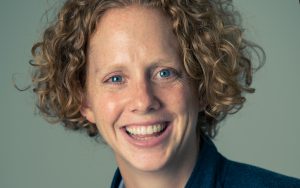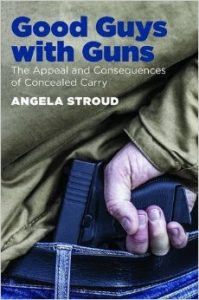by Ilya Slavinski

This fall, Dr. Sarah Brayne joins the faculty here in the sociology department at the University of Texas at Austin. She comes by way of Princeton University, where she received her PhD, and the University of British Columbia, which she attended for undergrad. Sarah does innovative and interesting work in surveillance, policing, and inequality. Her current project focuses on the use of big data in law enforcement. I was recently able to sit down with her for a cup of coffee, and I can confidently say we are very lucky to have her!
What first drew you to sociology?
As an undergrad, I thought I wanted to be a lawyer. Then, one of my friends who had taken a sociology class thought it was interesting and suggested I take one with him the next year. I was immediately hooked. I loved how sociology offered a new lens of viewing the world. It made me think of everyday things in a different way; everything that was familiar became unfamiliar. After taking sociology classes on the criminal justice system, I realized that I wanted to study the law rather than practice it. So, I decided to apply to grad school.
What did you do your dissertation on?
My dissertation was on police use of big data. I studied how the Los Angeles Police Department (LAPD) uses predictive analytics, and what the implications of new surveillance practices are for law and social inequality.
Why did you decide to work here at the University of Texas?
I wanted to work at a large department where faculty and students were conducting cutting-edge research and had diverse interests. When I interviewed here at UT Austin, I was so impressed with everyone I met. The strength of the department, coupled with the opportunity to live in Austin, sealed the deal for me.
What’s your experience of Austin?
I love Austin so far. I’ve only lived here for about a month, but so far I love the food and the weather. I know people complain about the heat, but I spent the last year living in Boston and would take hot over cold any day. I also love how easy it is to find beautiful places to hike and swim nearby. I don’t love the traffic (who does?), but honestly it is not as bad as some other places I’ve lived, like LA.
If you could teach one sociological concept to the world, what would it be?
I’d like to teach everyone the sociological imagination—the ability to see the connections between individual circumstances and broader social forces. I think that developing this quality of mind is crucial to redressing a lot of issues we are facing today.
What’s the most rewarding part of your job?
The most rewarding part of my job is that I get to learn something new every single day. There is so much variety in this line of work. On any given day, I might be doing fieldwork, writing, teaching, going to talks, reading, or working with policymakers. Also, although it is definitely challenging at times, I am grateful to be working on a topic like police use of technology that is at the forefront of important national debates right now.
What are your current research interests? What are you looking at these days?
I’m currently writing a book about the use of big data within law enforcement. In my future research, I’m planning on broadening the scope of institutions I study to better understand how predictive algorithms and new technologies are (or are not) transforming surveillance practices in a variety of institutional fields, from healthcare to immigration.
What’s one book that you’ve read over the past year that you’ve really enjoyed and why?
Matthew Desmond’s Evicted: Poverty and Profit in the American City is an incredibly impressive research project and beautifully written.
What do you like to do in your free time?
I like traveling, trying new restaurants, and getting outside whenever I can. I love skiing, but now that I live in Texas, I’m going to have to travel a little farther to find snow. Also, I used to teach sociology classes in state prisons in New Jersey, and would love to do something similar here in Texas. Please get in touch with me if you’re interested!
Ilya Slavinski is a PhD student in the Department of Sociology. He is also a graduate trainee in the Population Research Center, Ethnography Lab Fellow, and Rapoport Center for Human Rights and Justice Affiliate. Ilya received his MS in Non-Government Organizations and Development from the London School of Economics and his BA in Philosophy from Rutgers University. He studies the field of carceral policy decisions in Texas and how these decisions lead to unequal outcomes along class and racial lines.



